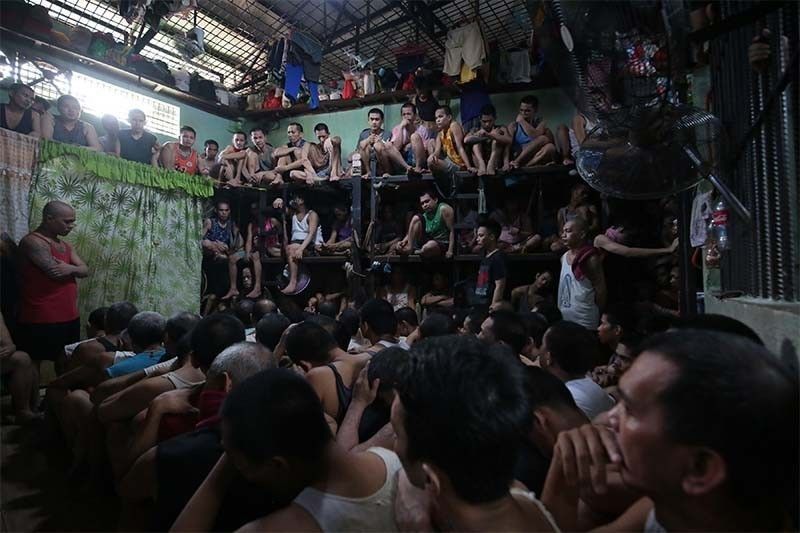As vaccination starts, government told not to forget inmates in cramped prisons

MANILA, Philippines — As the Philippine government finally starts its rollout of vaccination program against the coronavirus, an advocacy group for political prisoners asked health authorities not to forget inmates languishing in the country’s overcrowded prisons.
Kapatid, a support group for political prisoners, wrote to Health Secretary Francisco Duque asking the government to include all persons deprived of liberty (PDLs) to be included in the government’s mass vaccination program.
“With an unenviable record of having the highest jail congestion rate in the world, the Philippine prison system is a death trap,” Fides Lim, Kapatid spokesperson, said.
The Philippines on February 28 received 600,000 coronavirus vaccines from Beijing-based Sinovac on Sunday. Vaccination efforts started the following day, with health workers among the first to be administered with vaccines.
Frontline workers from the medical sector are on top of the priority list as they have the highest exposure to the coronavirus. Next in line are the elderly who are part of the age groups with highest fatality rate, following them are persons with comorbidities.
READ: LIST: Priority population groups for COVID-19 vaccination
But Lim pointed out that more than 215,000 PDLs, including the 680 political prisoners, are not safe from the threats of the coronavirus, and that they should not be denied of their right to receive vaccines.
“Subhuman conditions make prison facilities a reservoir of infectious disease. Ignoring them in the national efforts to contain COVID-19 will result in failure since the health of prisons and the communities surrounding them are linked,” she added.
Philstar.com has reached out to the DOH on whether prisoners will be included in the priority list for vaccines.
Inmates’ health is State responsibility
Penal and detention facilities across the country are known to be overcrowded, where social distancing and proper hygiene—practices meant to deter spread of the novel coronavirus—are practically impossible for inmates.
COVID-19 cases among inmates in the Bureau of Correction facilities, including the New Bilibid Prison, went as high as 251 in September 2020 with at least 26 fatalities. The Bureau of Jail Management and Penology meanwhile logged 1,987 cases among persons deprived of liberty, although numbers went down to 88 active cases in December, with five fatalities.
SPECIAL REPORT: Beyond arrest, raps: 'Quarantine violators' face trauma, COVID-19 risk too
Kapatid also stressed that under the United Nations Standard Minimum Rules for the Treatment of Prisoners, inmates’ health care is a responsibility of the state and they should enjoy the same standards of services that are available in the community. PDLs should also be granted access to necessary health care services without discrimination on their legal status.
“We ask your office to help ensure the rights to life and health of prisoners, including all political prisoners. Please do not fail them this time,” Lim added, noting that the Supreme Court had already failed them when it only remanded their plea for temporary release of sickly political prisoners after a five-month wait.
The SC and Department of Justice have issued policies to help decongest the prisons that allowed the release of thousands of inmates.
- Latest
- Trending

































